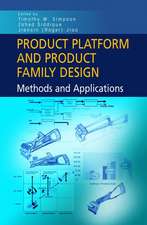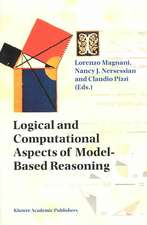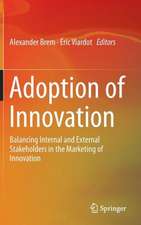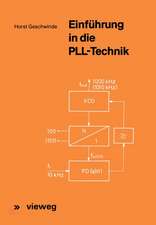Project-Based Knowledge in Organizing Open Innovation
Editat de Sara Bonesso, Anna Comacchio, Claudio Pizzien Limba Engleză Hardback – 29 iul 2014
Through field research in different industrial settings (pharmaceutical, automotive and machine tools) and with complementary methodological approaches, this book provides empirical evidence on how project knowledge features affect sourcing decisions at firm level.
Due to the emerging interest in the management literature on project-based organizations and on the relevance of project forms of organizing in a knowledge-based economy, this volume will appeal to scholars and students in business and management, in particular those in innovation management, organization theory and strategic management.
Addressing the still open issue of how the firm level should be complemented by studies at the project level of analysis, this book provides theoretical and empirical arguments on the advantages of a more fine-grained level of analysis to understand how firms organize their innovation processes across boundaries.
| Toate formatele și edițiile | Preț | Express |
|---|---|---|
| Paperback (1) | 618.78 lei 6-8 săpt. | |
| SPRINGER LONDON – 3 sep 2016 | 618.78 lei 6-8 săpt. | |
| Hardback (1) | 624.71 lei 6-8 săpt. | |
| SPRINGER LONDON – 29 iul 2014 | 624.71 lei 6-8 săpt. |
Preț: 624.71 lei
Preț vechi: 734.95 lei
-15% Nou
Puncte Express: 937
Preț estimativ în valută:
119.60€ • 124.31$ • 99.16£
119.60€ • 124.31$ • 99.16£
Carte tipărită la comandă
Livrare economică 06-20 februarie 25
Preluare comenzi: 021 569.72.76
Specificații
ISBN-13: 9781447165088
ISBN-10: 144716508X
Pagini: 114
Ilustrații: XV, 99 p.
Dimensiuni: 155 x 235 x 15 mm
Greutate: 0.34 kg
Ediția:2014
Editura: SPRINGER LONDON
Colecția Springer
Locul publicării:London, United Kingdom
ISBN-10: 144716508X
Pagini: 114
Ilustrații: XV, 99 p.
Dimensiuni: 155 x 235 x 15 mm
Greutate: 0.34 kg
Ediția:2014
Editura: SPRINGER LONDON
Colecția Springer
Locul publicării:London, United Kingdom
Public țintă
ResearchCuprins
How Open Innovation research can benefit from the project level of analysis.- Exploring the knowledge space through project-based sourcing decisions.- Outsourcing at the project level.- In-licensing decisions at a project level: The link between contract structuring and the distance of the in-licensed technology.- Open innovation at firm and project level: Future research agenda.
Notă biografică
The authors are management scholars whose main areas of research concern organization design, strategy and innovation management with a specific focus on the issue of organizing open innovation. This volume brings together contributions that aim to stimulate the discussion on a multi-level perspective on open innovation, suggesting that an appropriate level to understand firm sourcing decisions is at the level of innovation projects.
Textul de pe ultima copertă
Enriching understanding of the current theoretical debate on project-based open innovation, ‘Project-based Knowledge in Organizing Open Innovation’ draws on innovation management literature and knowledge-based perspectives to investigate the relationship between knowledge development at project level and the strategic organization of open innovation.
Addressing the still open issue of how the firm level should be complemented by studies at the project level of analysis, this book provides theoretical and empirical arguments on the advantages of a more fine-grained level of analysis to understand how firms organize their innovation processes across boundaries.
The book also addresses the emerging interest in the management literature on project-based organizations, and on the relevance of project forms of organizing in a knowledge-based economy.
Through field research in different industrial settings , this book provides empirical evidence on how firms design openinnovation project-by-project and it will appeal to scholars and students in business and management, in particular those in innovation management, organization theory, and strategic management.
Addressing the still open issue of how the firm level should be complemented by studies at the project level of analysis, this book provides theoretical and empirical arguments on the advantages of a more fine-grained level of analysis to understand how firms organize their innovation processes across boundaries.
The book also addresses the emerging interest in the management literature on project-based organizations, and on the relevance of project forms of organizing in a knowledge-based economy.
Through field research in different industrial settings , this book provides empirical evidence on how firms design openinnovation project-by-project and it will appeal to scholars and students in business and management, in particular those in innovation management, organization theory, and strategic management.
Caracteristici
Renews the current theoretical debate on project-based learning and R&D sourcing Provides theoretical and empirical arguments on the advantages of a more fine-grained level of analysis to understand how firms organize their innovation processes across boundaries Draws on innovation literature and knowledge-based perspectives to answer key questions in the field Includes supplementary material: sn.pub/extras




























